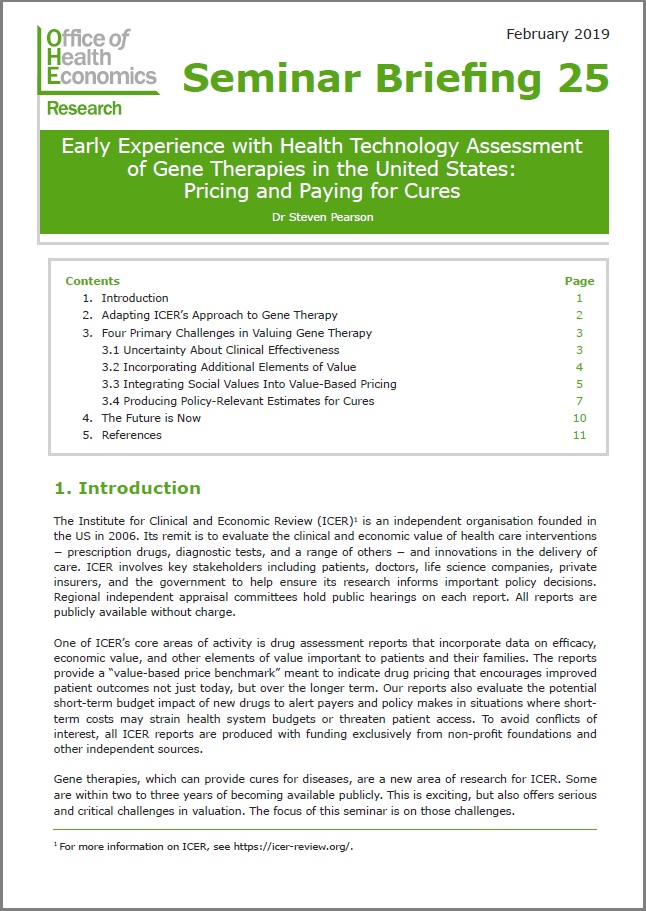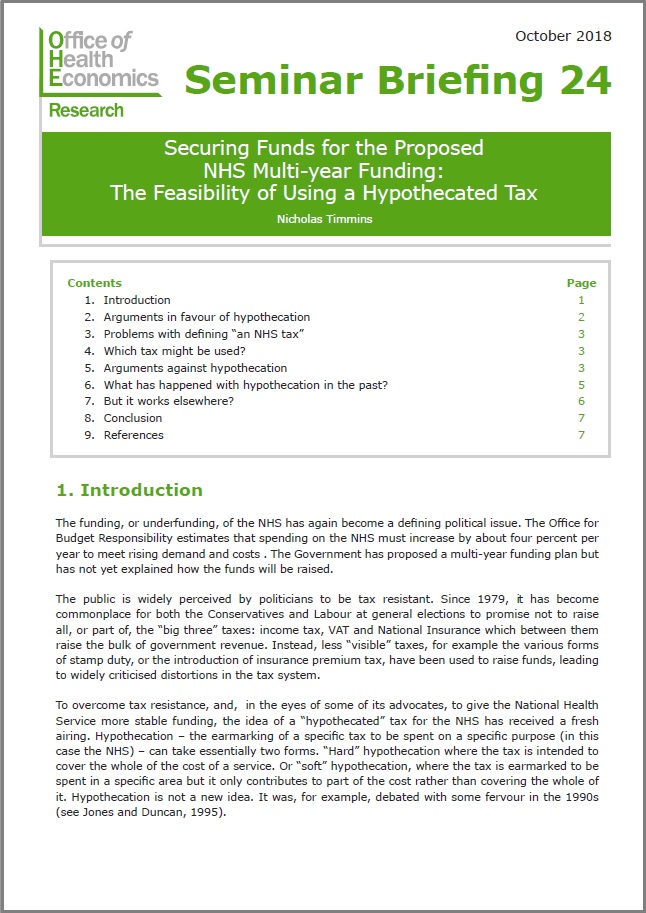Sign up to our newsletter Subscribe
Early Experience with Health Technology Assessment of Gene Therapies in the United States: Pricing and Paying for Cures

Sign up to our newsletter Subscribe


OHE was involved in several sessions at the 9th World Congress of the International Heath Economics Association (iHEA). Prof Adrian Towse, OHE’s Director, and Prof Lou Garrison, OHE Visiting Senior Research Fellow for 2012-13 and a professor at the University of Washington, took part in a session focusing on barriers to utilisation and delivery of health service in developing countries.
OHE was involved in several sessions at the 9th World Congress of the International Heath Economics Association (iHEA).
Prof Adrian Towse, OHE’s Director, and Prof Lou Garrison, OHE Visiting Senior Research Fellow for 2012-13 and a professor at the University of Washington, took part in a session focusing on barriers to utilisation and delivery of health service in developing countries. Adrian presented a paper examining the role of health technology assessment (HTA) (slides below).
Lou’s presentation in the same session described the results of a survey on the barriers to the use of HTA in twelve low- and middle-income countries (LMICs). Three countries were explored in greater depth: Kenya, South Africa and Vietnam. Although HTA could be crucial to solving the challenges of limited resources and substantial demand in LMICs, awareness and use of it are limited. Important barriers include lack of both technical capacity and the financial resources to fund research and evaluation.
Also focusing on LMICs, Prof Towse participated in a session on implementing differential pricing schemes (slides below). He discussed the role of price discrimination strategies, including the use of discounts, access programmes and risk sharing agreements in increasing the number of patients who can benefit from new medications in LMICs. Real life examples illustrated differential pricing schemes between and within countries and provided background for exploring feasibility—particularly about how options relying on confidentiality and negotiation compare with those based on collaborative international agreement about how price differentiation is developed and implemented.
Profs Towse and Garrison both participated in a session on personalised medicine, orphan disease drugs and the future of health economics. The discussions explored the challenges and potential responses raised by the shift in technology towards personalised medicine, which may entail higher costs and certainly will require innovation in pricing and reimbursement models.
Finally, a presentation of research that involved OHE’s Prof Nancy Devlin was discussed in a session that examined mapping between disease-specific patient outcome measures, such as the Oxford Hip Score, and “generic” patient-reported outcomes measures, such as the EQ-5D.
An error has occurred, please try again later.
This website uses cookies so that we can provide you with the best user experience possible. Cookie information is stored in your browser and performs functions such as recognising you when you return to our website and helping our team to understand which sections of the website you find most interesting and useful.
Strictly Necessary Cookie should be enabled at all times so that we can save your preferences for cookie settings.
If you disable this cookie, we will not be able to save your preferences. This means that every time you visit this website you will need to enable or disable cookies again.
This website uses Google Analytics to collect anonymous information such as the number of visitors to the site, and the most popular pages.
Keeping this cookie enabled helps us to improve our website.
Please enable Strictly Necessary Cookies first so that we can save your preferences!